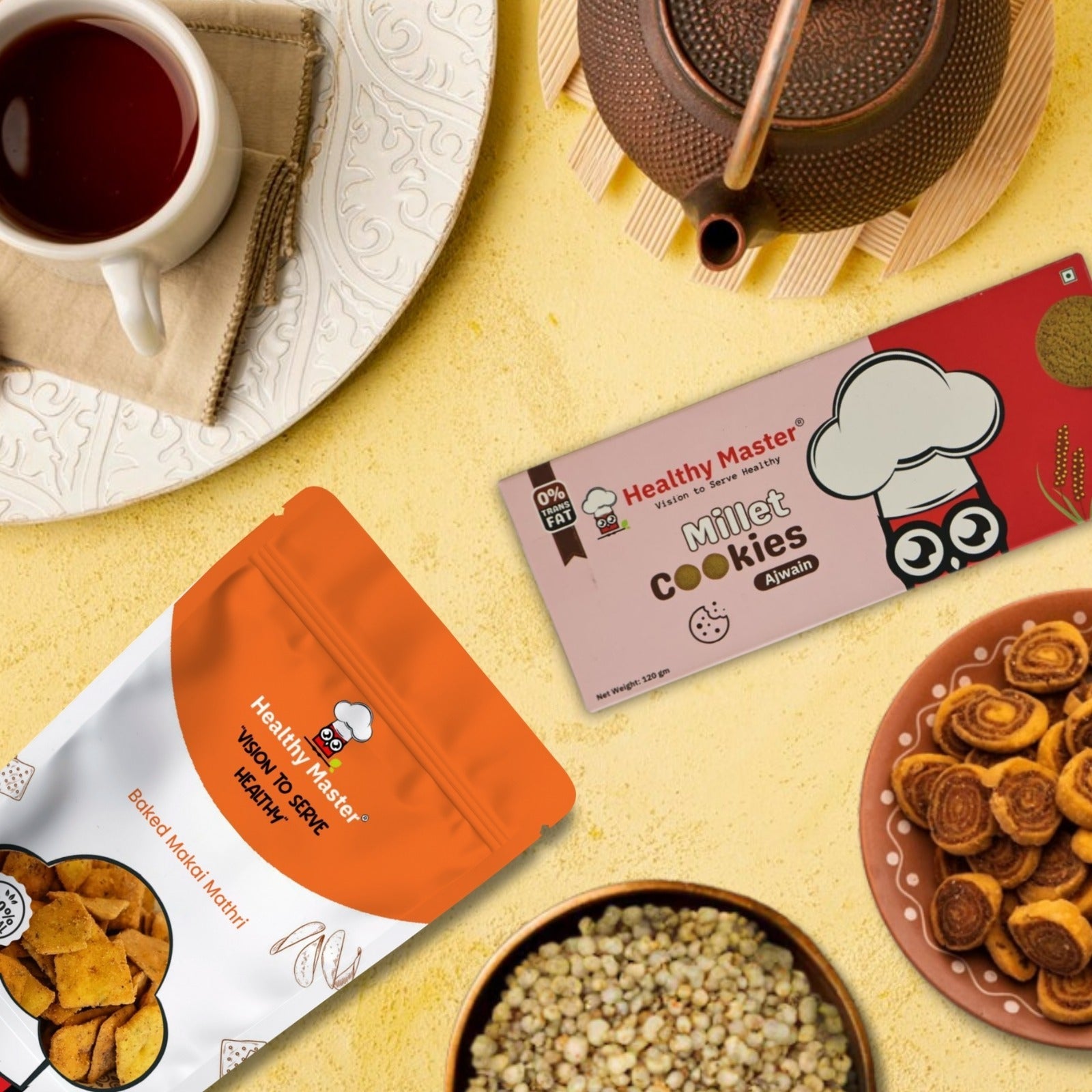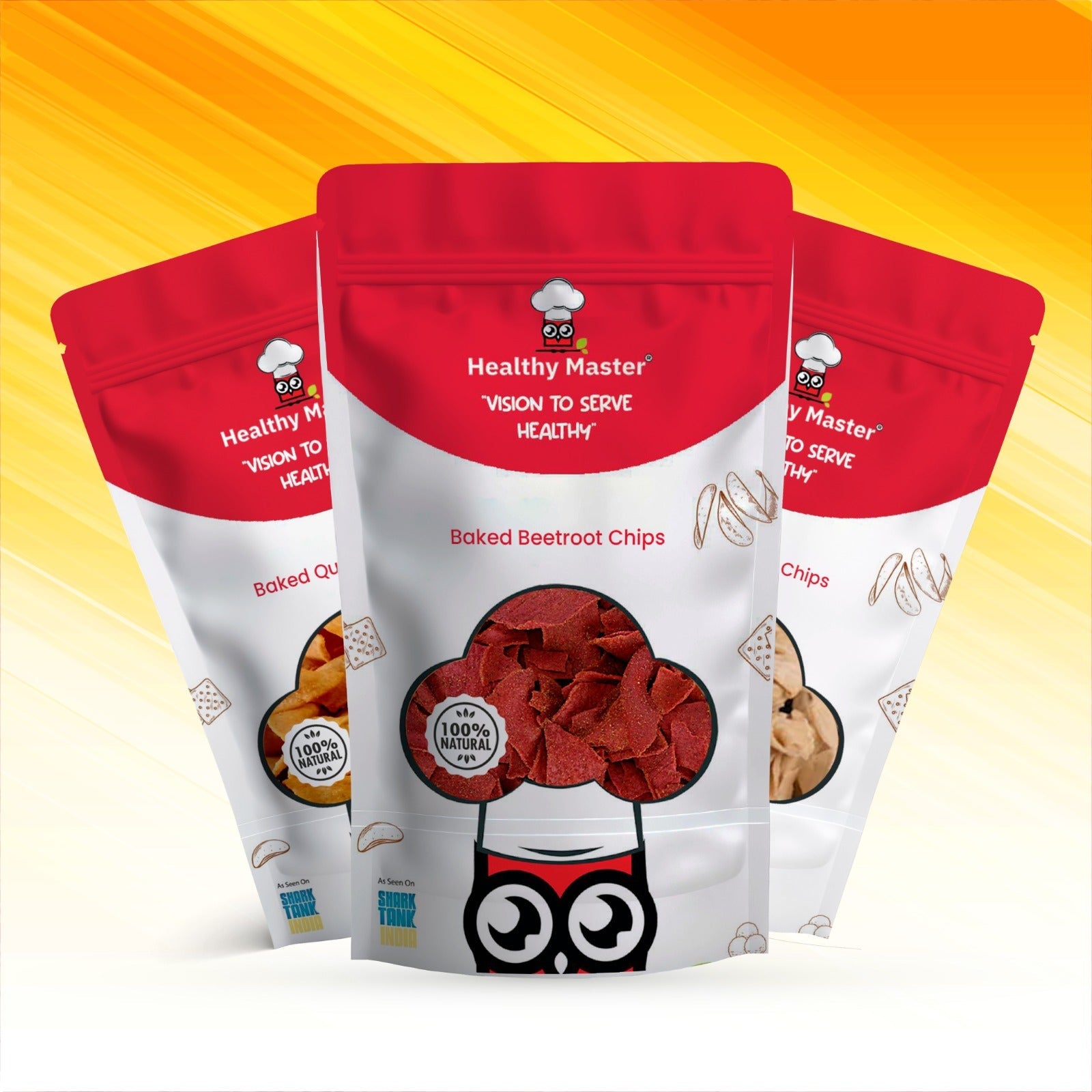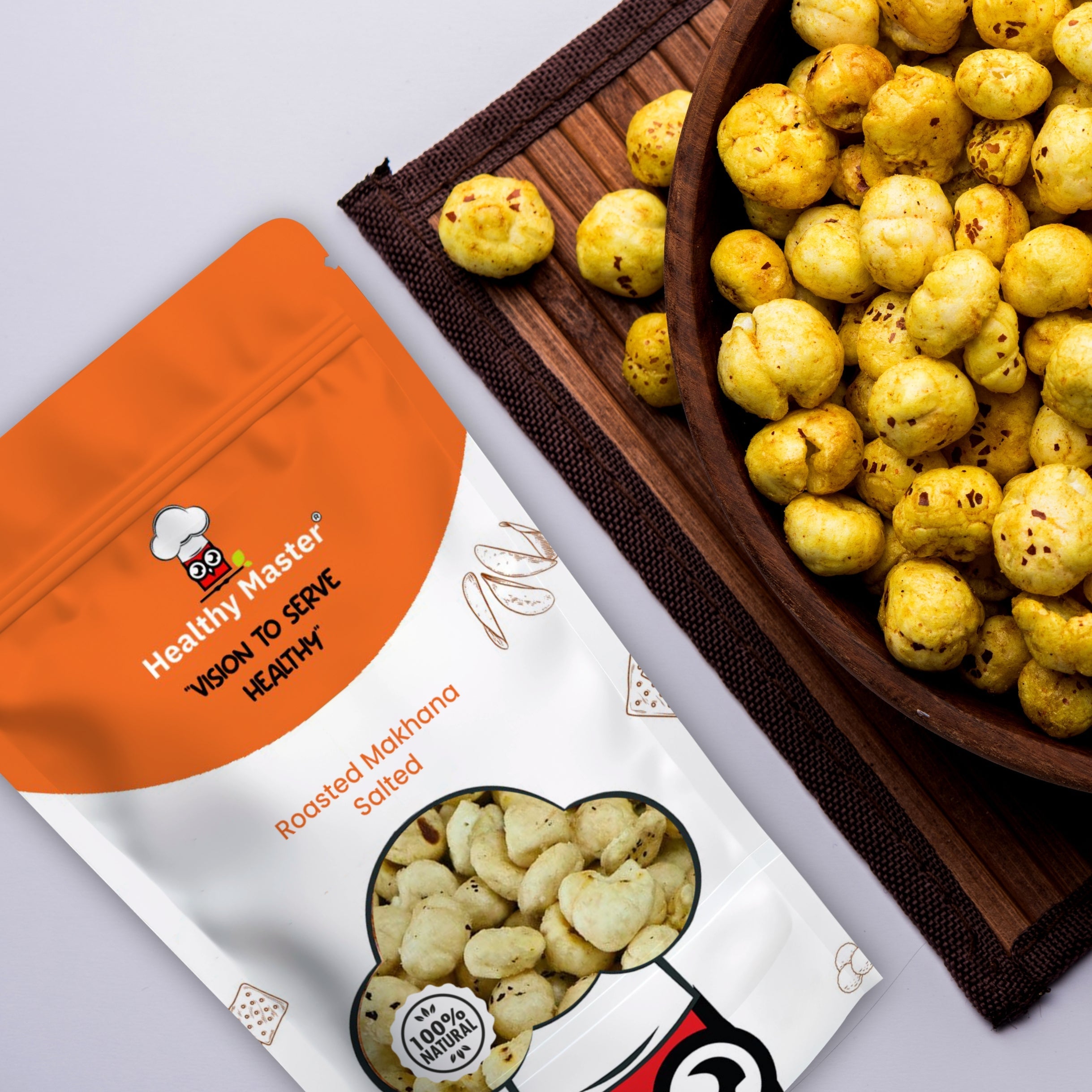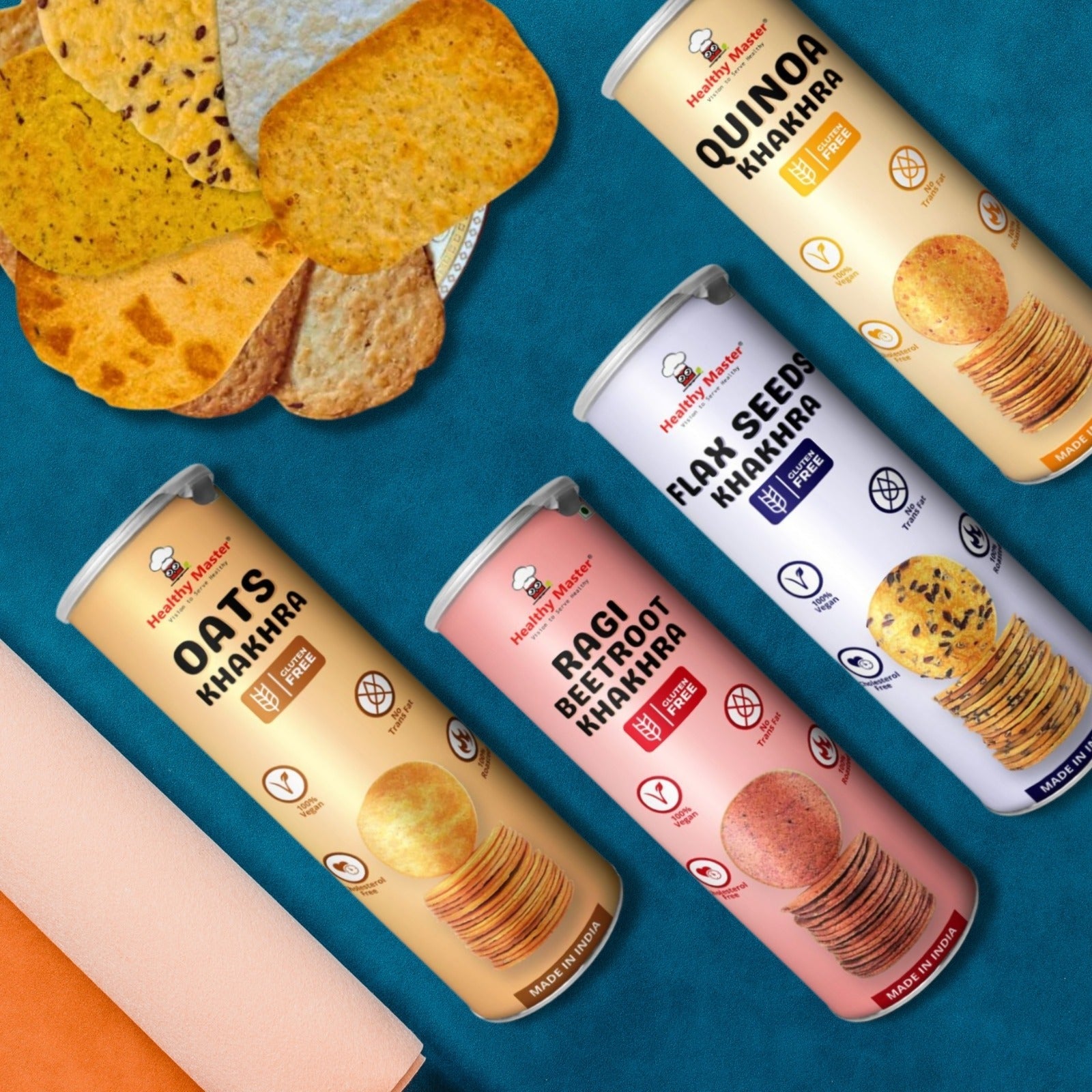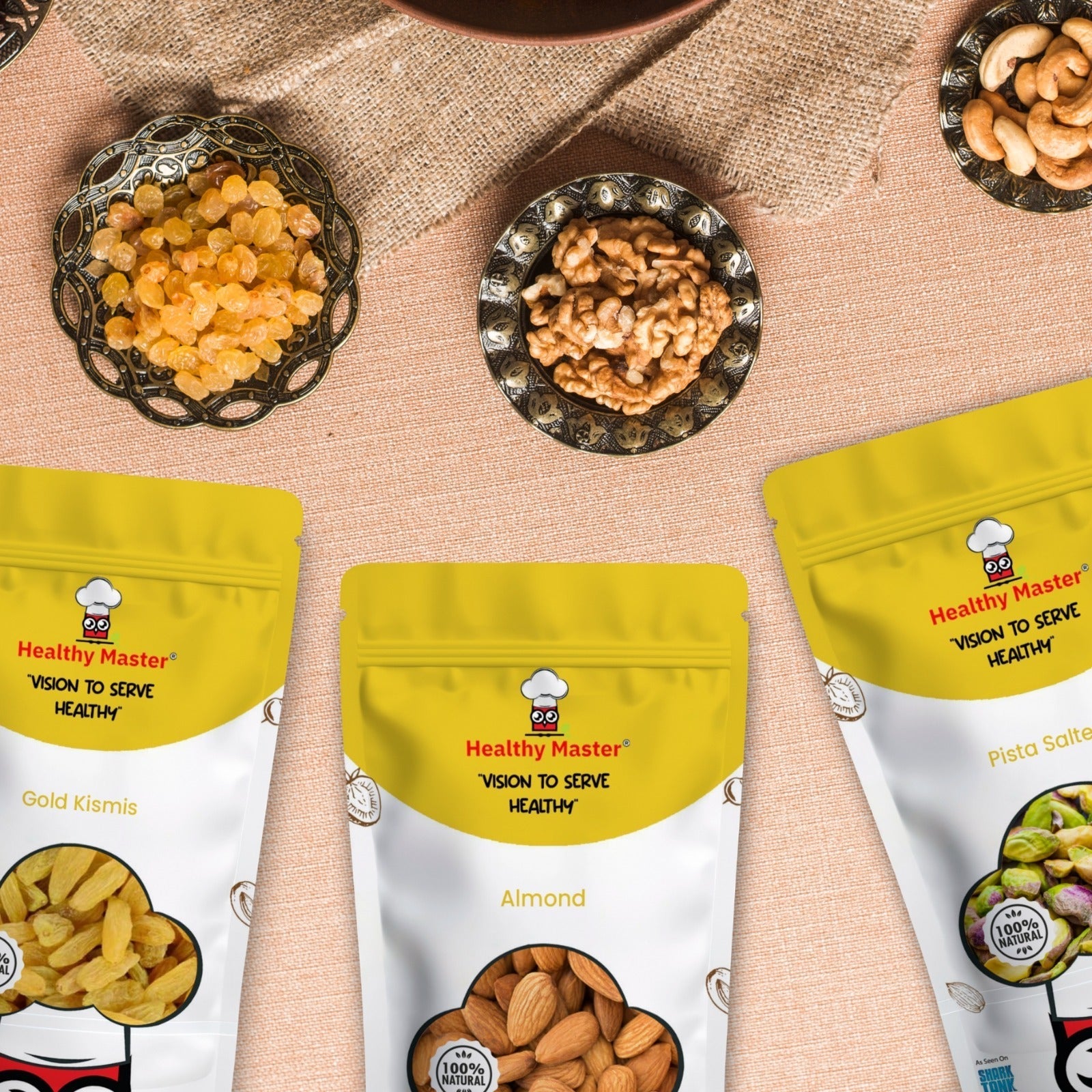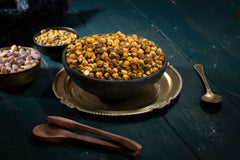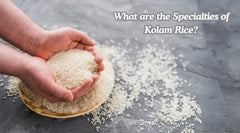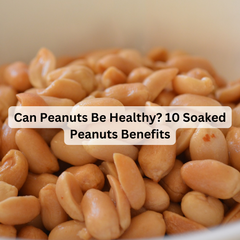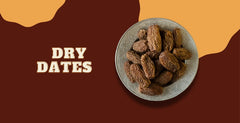If you are a vegetarian and you have been trying to put on a healthy weight, you have probably already realised one thing: it’s harder than it sounds. We know you don’t just want to eat more, you want to eat better. The goal here isn’t to gain weight from oily and sugar-loaded snacks; the ultimate goal is to add lean muscle, strength, and lasting energy to your body.
That’s where high-protein dry fruits for weight gain come in. They’re compact, nutrient-dense, and easy to snack on, without the fuss of cooking or complicated meal prep. Whether you’re a busy working professional, a student with limited kitchen access, or a fitness freak looking for vegetarian protein sources, dry fruits and nuts can fit seamlessly into your lifestyle.
And you know what’s the bonus? Dry fruits aren’t just about calories; they deliver protein, healthy fats, vitamins, minerals, and antioxidants all in one handful. You can just think of them as nature’s own muscle-building energy packs. Order your favourite dry fruit pack from Healthy Master today.
Why Dry Fruits Are Ideal for Healthy Weight Gain
The reality is, healthy weight gain involves more than just slapping butter on your toast or having an additional dessert after meals. The actual secret is nutrient-rich calorie sources that feed your body as they boost your caloric consumption.
Nutrient Density: Protein, Healthy Fats, and Micronutrients
In contrast to processed foods, dry fruits are packed with macronutrients your body can utilize. Protein helps repair and build muscle, healthy fats assist in the production of hormones (critical to building muscle), and micronutrients such as magnesium, potassium, and zinc enhance energy generation and recovery.
For example:
-
Almonds offer 21g of protein per 100g, along with calcium for bone health.
-
Pistachios deliver 20g of protein and fibre for better digestion.
-
Walnuts provide omega-3 fatty acids that reduce inflammation after workouts.
Calorie-Dense Without Junk Calories
You can gain weight on fried food, but it tends to be accompanied by bloating, low energy, and fat accumulation in the wrong places. High-protein dry fruits used to gain weight provide the same calorie excess without the unnecessary calories. For example, a 50g serving of mixed nuts will add a whopping 300 calories to your day, but the calories also come with protein, vitamins, and healthy fats.
Easy to Eat Anytime
Dry fruits and nuts are a vegetarian and vegan's dream schedule. You can munch on them during your commute, mix them in smoothies, sprinkle them on breakfast bowls, or consume them after a workout.
Ideal for Vegetarians and Vegans
If you don't consume meat, poultry, or fish, spotting protein-rich vegetarian alternatives is increasingly significant. Dry fruits and nuts offer plant protein in the form of a dense concentration, which can help bridge the gap without having to turn to heavily processed vegetarian protein powders.
Best Dry Fruits with High Protein for Vegetarians
Here's your complete list of best dry fruits for weight gain for vegetarians, along with nutritional information, advantages, and delectable ways to consume them.
1. Almonds
-
Protein (per 100g): ~21g
-
Calories (per 100g): ~576 kcal
Almonds are a protein powerhouse and one of the best dry fruits for weight gain. They're also packed with vitamin E, which is an antioxidant that helps to safeguard muscles after high-intensity workouts. Almonds contain magnesium, which is important for muscle contraction, thus making them a great choice for strength training.
Why they're ideal for weight gain:
-
High protein + healthy fats for harmonious muscle expansion
-
Aids in bone health with calcium
-
Increases recovery post-workout
How to consume almonds for weight gain:
-
Soaked overnight: Softer texture, easier digestion
-
Almond butter: Spread on whole-grain toast or add to smoothies
-
Trail mix: Blended with dates and pumpkin seeds for a calorie-dense snack
Also read about: Why are almonds good for the heart?
2. Pistachios
-
Protein: ~20g per 100g
-
Calories: ~562 kcal
Pistachios are one of the best protein-rich dry fruits in India that are also rich in fibre and heart-friendly fats. They contain slightly fewer calories than some nuts, but compensate with a high satiety value, so you feel full longer.
Muscle-building benefits:
-
Protein aids in the recovery of muscles
-
Fibre helps digestion so that nutrients are absorbed
-
Rich in potassium for muscle and nerve function
Methods to incorporate pistachios into your diet:
-
Blended into smoothies with banana and almond milk
-
Sprinkle on salads or yogurt bowls
-
Consume as part of a post-workout trail mix
Also read about: Health and nutritional benefits of Pistachio
3. Cashews
-
Protein: ~18g per 100g
-
Calories: ~553 kcal
Cashews are rich, slightly sweet, and calorie-dense, thus perfect for individuals with difficulty meeting their daily calorie requirements. They are rich in magnesium, which is useful for muscle and nerve function.
Why do they serve for weight gain?
-
Healthy fats in a calorie surplus
-
Magnesium aids in muscle recovery
-
A good plant iron source
How to use cashews:
-
Blend into vegan cheese or creamy pasta sauce
-
Add to stir-fries for added texture
-
Munch on roasted cashews with sea salt
Also read about: Benefits of eating Cashew Nuts
4. Walnuts
-
Protein: ~15g per 100g
-
Calories: ~654 kcal
Walnuts are high in omega-3 fatty acids, a not-so-common nutrient in plant-based diets. These healthy fats fight inflammation, which can speed recovery between workouts.
Muscle-building benefits:
-
Omega-3s improve exercise recovery
-
Protein facilitates lean muscle mass gain
-
Healthy for the brain and heart
Simple recipe ideas:
-
Walnut banana milkshake for a calorie-dense breakfast
-
Sprinkle on oatmeal with honey and dried cranberries
-
Prepare walnut energy bars with oats and dates
Also read about: Health benefits of eating Walnuts
5. Dates (Carbohydrates + Protein Synergy is high)
-
Protein: ~2.5g per 100g
-
Calories: ~277 kcal
Dates are not very protein-rich, but they are full of natural sugars, which make them the best for instant energy prior to or post-workout. When served with nuts, they form a well-balanced carb + protein snack for energy as well as muscle recovery.
Why they're ideal for vegetarians looking to gain weight:
-
Carb-heavy composition drives workouts
-
Complements nuts for superior macros
-
Provides natural sweetness without the use of refined sugar
Delicious date ideas:
-
Fill with almonds or pistachios
-
Mix into smoothies for sweetness
-
Chop up into homemade granola
Also read about: Health Benefits of Dates
6. Honourable Mentions
-
Brazil Nuts: Selenium and healthy fat-rich, thyroid health
-
Hazelnuts: Rich source of vitamin E; skin health
-
Peanuts: Legume, but cheap, protein-rich (~26g per 100g)
Protein-Rich Seeds to Complement Dry Fruits
Though dry fruits are great in and of themselves, pairing them with high-protein nuts and seeds for weight gain makes your snacks even stronger.
-
Pumpkin Seeds: ~30g protein per 100g; also high in zinc for immune function
-
Sunflower Seeds: Good content of vitamin E and healthy fats
-
Chia Seeds: Satisfactory omega-3 content and fibre for digestion
-
Flax Seeds: Maintains heart health and hormonal balance
Create a trail mix of homemade nuts and seeds, almonds, cashews, walnuts, pumpkin seeds, sunflower seeds, and dried cranberries to use as a convenient, calorie-dense snack.
How to Gain Weight with Dry Fruits – Simple Tips
Adding dry fruits for vegetarian weight gain isn't about munching randomly by the handful; it's about intentional placement within your diet. Here are some suggestions to incorporate dry fruits into your life:
-
Breakfast: Sprinkle chopped walnuts and almonds on your cereal or oatmeal.
-
Mid-Morning Snack: A handful of trail mix with dates, pistachios, and sunflower seeds.
-
Pre-Workout: Banana with almond butter or some stuffed dates.
-
Post-Workout: Smoothie made with milk, cashew butter, and cocoa powder.
-
Evening Snack: Jaggery and roasted peanuts for protein + iron boost.
Portion Size & Tips for Maximum Benefit
Dry fruits are nutritious, but they're calorie-rich, so portion control is important even if your objective is weight gain.
-
Recommended consumption for weight gain: 50–100g per day (approximately 2–3 small handfuls)
-
Pair with carbs and protein: e.g., nuts with whole-grain bread or nuts + fruit smoothie
-
Drink plenty of water: Protein metabolism needs adequate water
-
Exercise synergy: Strength training makes sure your calorie excess goes to muscle rather than fat
Common Mistakes to Avoid
Overindulgence without exercise results in fat gain instead of muscle gain.
Having salted/sugar-coated dry fruits, too much sodium and sugar may lead to bloating and energy crashes.
Overlooking the rest of your diet, Dry fruits are to be included in a balanced vegetarian diet with plenty of legumes, whole grains, and vegetables.
Also read about: Recipes for a balanced diet for vegetarians.
Final Thoughts
For vegetarians, high-protein dry fruits for weight gain are a natural, nutrient-rich, and tasty means of boosting calorie intake without affecting health. They're convenient, flexible, and mix with ease into snacks, smoothies, and meals.
Take the first step today by discovering Healthy Master's range of high-protein nuts, seeds, and mixed dry fruits, painstakingly prepared for taste, nutrition, and freshness. Your road to healthy weight gain has just become a whole lot more delicious.
Frequently Asked Questions
-
Which dry fruit contains the most protein?
Almonds and pistachios lead the race with approximately 20–21g of protein per 100g.
-
Can I gain weight by just consuming dry fruits?
Not exactly, pair them up with other vegetarian protein options such as legumes, tofu, and whole grains.
-
Are dry fruits helpful in building muscles?
Yes, coupled with strength training, they provide the requisite amino acids and good fat for rehabilitation.
-
For how long should one gain weight using dry fruits?
With regular diet and strength training, visible changes can be expected in 6–8 weeks.
 Deal of the week : Trial Snack Box - 18 Wholesome Delights Just at ₹ 899.00
Deal of the week : Trial Snack Box - 18 Wholesome Delights Just at ₹ 899.00


